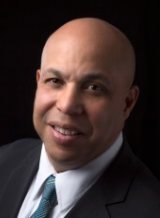Industry Insights
June 25, 2020
Duff: Workers Win Preliminary Injunction on Public Nuisance Theory
- State: California
- - 0 shares
All the stars aligned for a worker-filed a public nuisance suit — at least, chapter one of the suit — the most important of which were probably that the case was brought in a California state court and involved California code law rather than the common law of public nuisance torts.

Michael C. Duff
It is also notable that the suit did not involve McDonald’s corporate (or its lawyers). In short, the state court mandated a McDonald’s franchisee to take OSHA-like remedial measures to make its restaurant safer from COVID-19.
This was another case in which plaintiffs were restaurant workers and (a 10-month old child of one of the workers was also a plaintiff). Plaintiffs, in addition to seeking injunctive relief, demanded compensatory damages. I note that the preliminary injunction was granted “in part,” so I am not clear which portion of the injunction was denied.
The dance in the case will be the attempt to not characterize the compensatory damages sought as negligence so as to bring them within the workers’ compensation exclusivity bar.
In addition to public nuisance injunctive relief and compensatory damages, plaintiffs seek compliance with Oakland sick leave ordinances and a finding of the commission of unfair and unlawful business practices under Cal. Bus. & Prof. Code Sections 17200, et seq. As remedies for those violations, plaintiffs seek “disgorgement of profits, interest, penalties, attorneys’ fees and expenses pursuant to Code of Civil Procedure Section 1021.5, and costs of suit.”
Unfortunately, the judge’s decision contains little analysis, so I am unable to parse its rationale. From a distance, however, I note that “[u]nder California law, a nuisance is defined as ‘[a]nything which is injurious to health ... or is indecent or offensive to the senses, or an obstruction to the free use of property, so as to interfere with the comfortable enjoyment of life or property.’”
Moreover, “[a] public nuisance is one which affects at the same time an entire community or neighborhood, or any considerable number of persons, although the extent of the annoyance or damage inflicted upon individuals may be unequal.” The complaint must allege damages “specially injurious to [plaintiff], but not otherwise.”
As I have mentioned in prior posts, under the common law an injunction for public nuisance cannot lie unless the petitioner is eligible to recover damages, has authority as a public official or public agency to represent the state or a political subdivision in the matter, or has standing to sue as a representative of the general public, as a citizen in a citizen’s action or as a member of a class in a class action.
The restatement also recites that “[i]t has been the traditional rule that if a member of the public has not suffered damages different in kind and cannot maintain a tort action for damages, he also has no standing to maintain an action for an injunction.”
Under the common law, the difficulty here would be whether the plaintiffs have suffered COVID-19 injuries (or imminent threats thereof) different in kind (not extent) from the general public. To complicate matters, the nuisance in question is partially anticipatory.
“The doctrine of anticipatory nuisance is brought into focus normally when a moving party is seeking to prevent commencement of what is alleged will become a nuisance.” The doctrine “has existed under the common law for many years ... [but] is under-utilized because of the high burden of proof (e.g., reasonable certainty or high probability) ... normally set.” (See page 688 here).
What makes these public nuisance cases so interesting is that any underlying tort/negligence/nuisance damages would seem to be instantly subsumed by workers’ compensation exclusivity. But we simply do not seem to have cases on the books challenging exclusivity in circumstances where only injunctive relief is sought. There would have been no substantial incentive to pursue such actions in the past.
And however this case might come out under the common law, I am not a California lawyer. As we all know, California law (especially tort law, as my students will attest) is often different.
Michael C. Duff is associate dean for student programs and external relations, and is professor of law, at the University of Wyoming College of Law. This entry is republished from the Workers' Compensation Law Professors blog, with permission.
Advertisements
Columns
- Montgomery: San Fran City Official Stole $627k From Workers' Comp Division 12/10/25
- Kamin: Ring the Bells for Settlement Season 12/08/25
- Paduda: Does Comp Care About Workers? 12/05/25
- Sandoval: Throwing Subrogation Under the Bus 12/03/25
- Johnson: Some Thoughts on Apportionment - And SIBTF 11/20/25
- Montgomery: State's First Responders May File Comp Claims for Trauma 11/14/25
- Snyder: Use This New Survey to Negotiate Better 11/12/25
- Holden: Workers' Compensation Act Withstands Another Constitutional Attack 11/11/25
- Gelman: Sherrill's Win Locks in Worker Protections 11/10/25
- Kamin: Newsom Promises SIBTF Reforms in 2026 11/07/25
- Kamin: Comp Costs Hit Highest Combined Ratio Since 2001, WCIRB Says 11/05/25
- Montgomery: DIR to Blow $1.25M on Another Questionable Comp Study 11/03/25
- Wroten: California Sets the Standard as New Study Links Workplace Injuries to Heat Exposure 10/29/25
- Kamin: En Banc Clarifies Policy Reporting Requirements 10/27/25
- Gelman: PTSD-Stricken Officer's Disability Claim Denied 10/22/25
- Snyder: TAG a Structured Settlement Broker 10/17/25
- Snyder: New Medi-Cal Rules Can Affect Your Settlement 10/15/25
- Fish: Guarding Against PTSD Overdiagnosis 10/10/25
- Montgomery: DWC's MPN List Disappears Yet Again 10/08/25
- Ferguson: A Tribute to Thomas Chapman Lynch 10/06/25
Now Trending
- Workers' Compensation News
-
Calif. Court: WCAB
Has Duty to Flesh Out Witness
Statements When Workers Can't…
Posted on Dec 9, 2025
-
Calif. SCIF:
Ambiguity in Disability
Accommodation Rules Could Hamper…
Posted on Dec 8, 2025
-
Calif. Court Nixes
Requirement to Add Comp Coverage to
FAIR…
Posted on Dec 10, 2025
-
Mass. Worker's
Unreasonable Conduct Delaying Case
Results in Dismissal of…
Posted on Dec 8, 2025
-
Mo. Carrier Must
Pay Bill for Worker's Knee…
Posted on Dec 11, 2025
-
Wis. Employer
Wrongfully Refuses to Rehire
Injured Truck…
Posted on Dec 10, 2025
-
Ntl. NCCI: Rate
Cuts Getting Smaller, but Decreases
Expected to…
Posted on Dec 15, 2025
-
N.J. High Court:
Comp Judge Can Rule on Law She
Sponsored in…
Posted on Dec 12, 2025
-
N.Y. Widow Doesn't
Need Carrier's Consent to Settle
Third-Party…
Posted on Dec 9, 2025
-
Ariz. Court
Upholds Closure of Worker's Claim
for Injuries From Being Punched by…
Posted on Dec 12, 2025
Jobs
- Workers' Compensation Defense Attorney (REMOTE)
- Workers’ Compensation Defense Attorney - 100% Remote
- In-house REMOTE Workers' Compensation Litigation Attorney
- Defense Attorneys - Remote Work Available
- Defense Attorney
- Trial Attorney - Workers Compensation Staff Counsel
- Defense WC Attorney Wanted- We will beat any offer for the right candidate. Low billables, real bonuses and fast track equity partnership Workers' Compensation Jobs
Upcoming Events
Mar 3-4, 2026
Save The Date! WCRI’s 2026 Ann
Registration will open up in the coming months. We'll see you there! - Leading national workers' …
Mar 5-6, 2026
DWC’s 33rd Annual Educational
Register Now! 2026 conference topics: DWC Update AI with a Claims Focus Medical and Legal Ethics …
Mar 19-20, 2026
DWC’s 33rd Annual Educational
Register today! 2026 conference topics: DWC Update AI with a Claims Focus Medical and Legal Ethi …
Social Media Links
c/o Business Insurance Holdings, Inc.
Greenwich, CT 06836




No Comments
Log in to post a comment